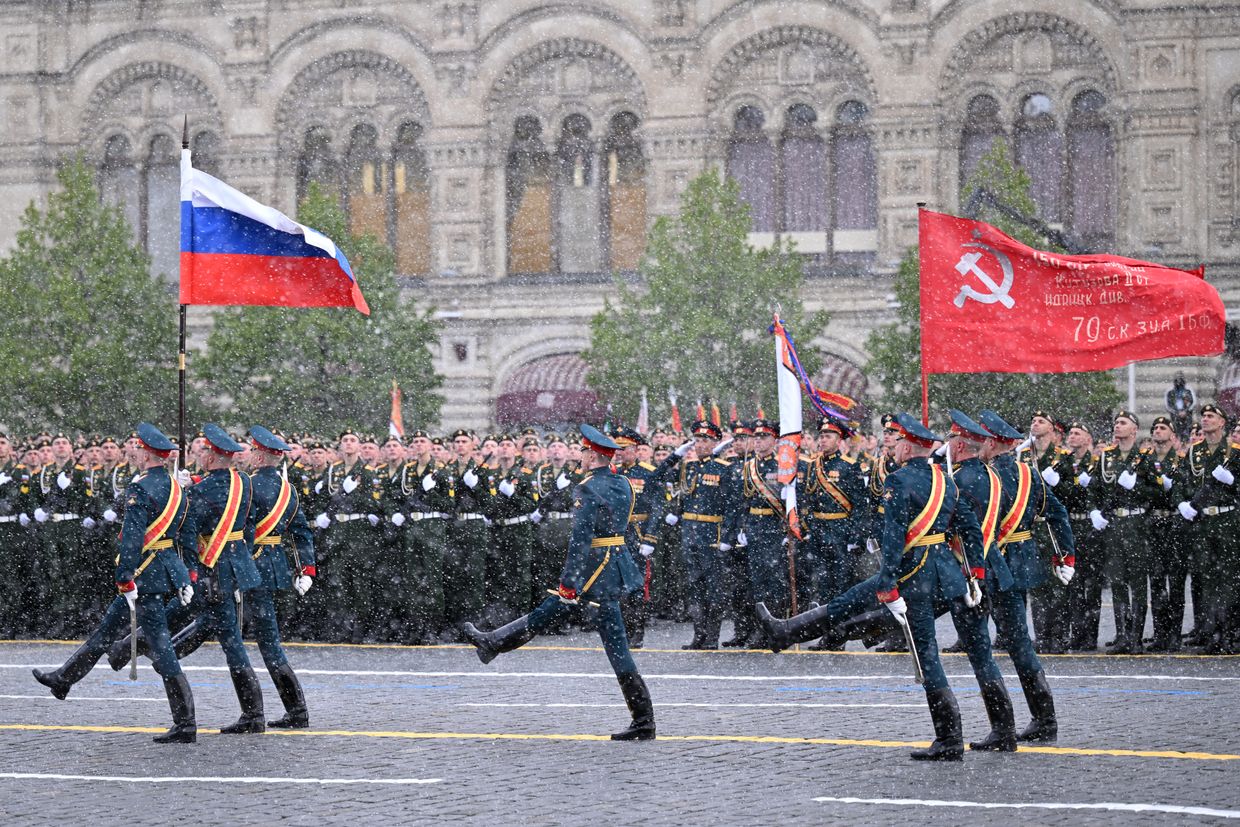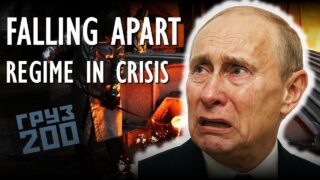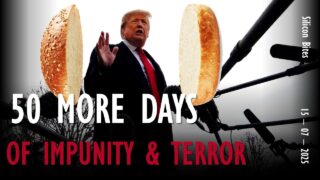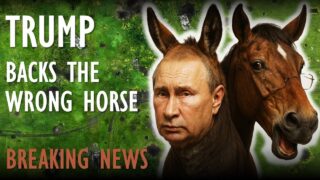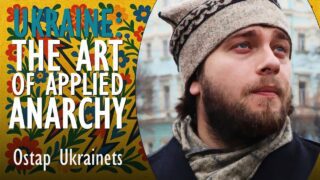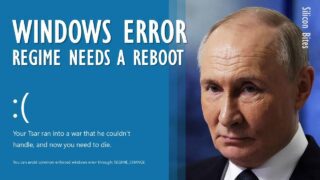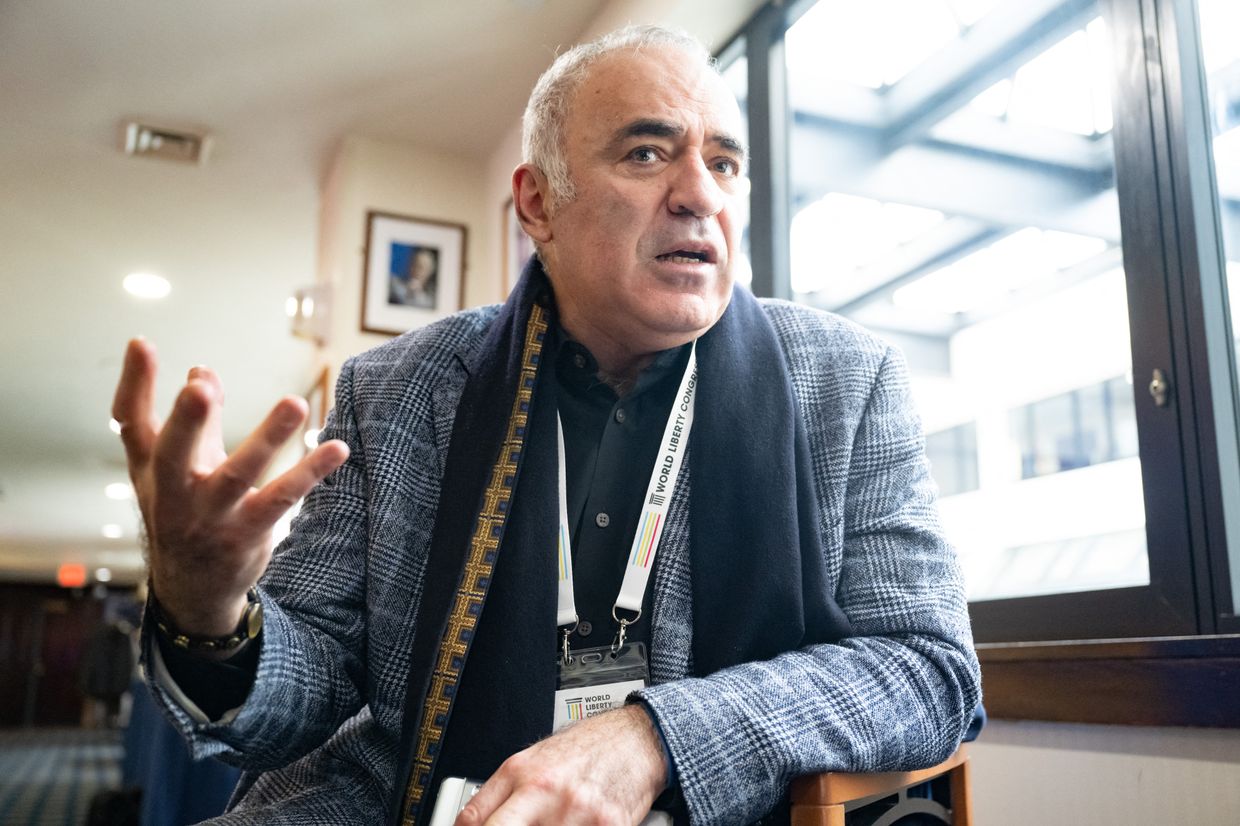
Garry Kasparov: 'You never hear Russian opposition actually say Ukraine must win'
The Russian opposition is an odd bunch. While not supporting Russia's brutal all-out war against Ukraine and its people, the leaders of the so-called opposition don't want their country to lose.
A number of those who oppose Russian President Vladimir Putin and his regime have petitioned for the West to lift sanctions imposed on Russia for the war it had begun and the war crimes it had committed.
Garry Kasparov, Russian chess grandmaster and political activist, is not among them. Supporting Ukraine militarily and making sure it wins is a moral imperative, says Kasparov.
A staunch critic of authoritarianism, Kasparov wrote about the dangers posed by Putin's rule for years.
His 2015 book, "Winter Is Coming: Why Vladimir Putin and the Enemies of the Free World Must Be Stopped," outlined Russia's political threat to global security.
Over the past three years, Kasparov has repeatedly argued that any chance at Russia becoming a democratic country not only requires its total military defeat but a shedding of its imperialistic legacy — a stance not widely embraced by other Russian opposition figures.
In an interview with the Kyiv Independent, Kasparov shared his thoughts on the current state of the Russian opposition, why they're looking for a "good tsar" to replace Putin, and why he'll push back at those who insist it's "Putin's war" rather than Russia's war.
This interview has been edited for length and clarity.
The Kyiv Independent: Living in the West, you're well-placed to comment on its perceptions of Russia. There are these centuries-old ideas like the "Russian soul" or the warning not to "poke the Russian bear."
Do you think the enduring popularity of these ideas has contributed to both the West's fear of Russian escalation but also this misplaced compassion for Russians as some tortured souls who are just misunderstood?
Garry Kasparov: You know, I think it's a matter of looking for a black cat in a dark room — something that is simply not there. That's the crux of the problem. I remember, back when I was younger, my friend Yury Afanasyev, a brilliant historian, said that Russian literature was one of the most fertile sources of Russian nationalism. At the time, I instinctively disagreed. But now I see he was right.
American exceptionalism is rooted in tangible concepts like living standards, respect for human rights, and the rule of law. Russian exceptionalism, on the other hand, leans more toward the mystical. It's tied to the notion that being Russian means having a special connection to a higher power. However, Russian history provides no evidence of such a unique connection. We need to delve deeply and understand, on a fundamental level, why the idea of the "Russian soul" remains so resistant to external influences.
The war in Ukraine has shown us that when we celebrated the fall of communism in 1991, we failed to grasp that communism was merely a facade for an underlying imperialist matrix.
Whether it's the tsars, the Bolsheviks, or Putin, this imperialism always finds a way to emerge.
"I've been saying for the past three years that there's only one way to dismantle this imperial matrix: the Ukrainian flag has to fly over Sevastopol again."
I've been saying for the past three years that there's only one way to dismantle this imperial matrix: the Ukrainian flag has to fly over Sevastopol again. As long as the idea of Russia's messianic mission endures, nothing will truly change. You need to shatter it with a visual shock. This is likely the best — perhaps the only — way to give Russia a chance to reform itself into a normal nation-state in the true sense of the word.
The Kyiv Independent: One might say that living abroad can deepen or distance one's understanding of their home country. How has it been for you and the way you look at Russia?
Garry Kasparov: Undoubtedly, when you step away, you lose a certain connection to things on the ground. Some things are no longer tied to your immediate senses. However, if you want to analyze the bigger picture, distance can be helpful because you're no longer caught up in the daily routine. From afar, you gain a sense of objectivity. After all, why do you need to be on the inside to understand what's happening — especially when you've been predicting it for so long?
My first warning about Vladimir Putin and the potential dangers he posed came on Jan. 4, 2001, in a piece I wrote for The Wall Street Journal. When he began attacking free media and television, I immediately recognized the signs — his statements like "once KGB, always KGB," and actions like restoring the conservative Soviet anthem.
The writing was on the wall.
On April 25, 2005, during his State of the Nation address, he declared that "the collapse of the Soviet Union was the greatest geopolitical catastrophe of the 20th century." That statement was the defining moment. It was a clear declaration of intent to rebuild the Russian Empire — not necessarily within the same borders, but rather a return to the kind of world where the underlying principle is that "might makes right." This is the world Putin understands.
"It was a clear declaration of intent to rebuild the Russian Empire — not necessarily within the same borders, but rather a return to the kind of world where the underlying principle is that "might makes right."
What's tragic is that even now, after so much blood has been spilled, there are still people in the free world trying to find some kind of compromise or middle ground to return to. What they fail to recognize is that you cannot negotiate with this kind of evil for a simple reason: Putin views this as a war of destruction, not a war for territorial gains. Giving him a piece of Ukrainian territory won't change his calculations — it will only whet his appetite. His ultimate goal includes the destruction of Ukrainian statehood because Ukrainian statehood is one of the pillars of this world order he seeks to dismantle.
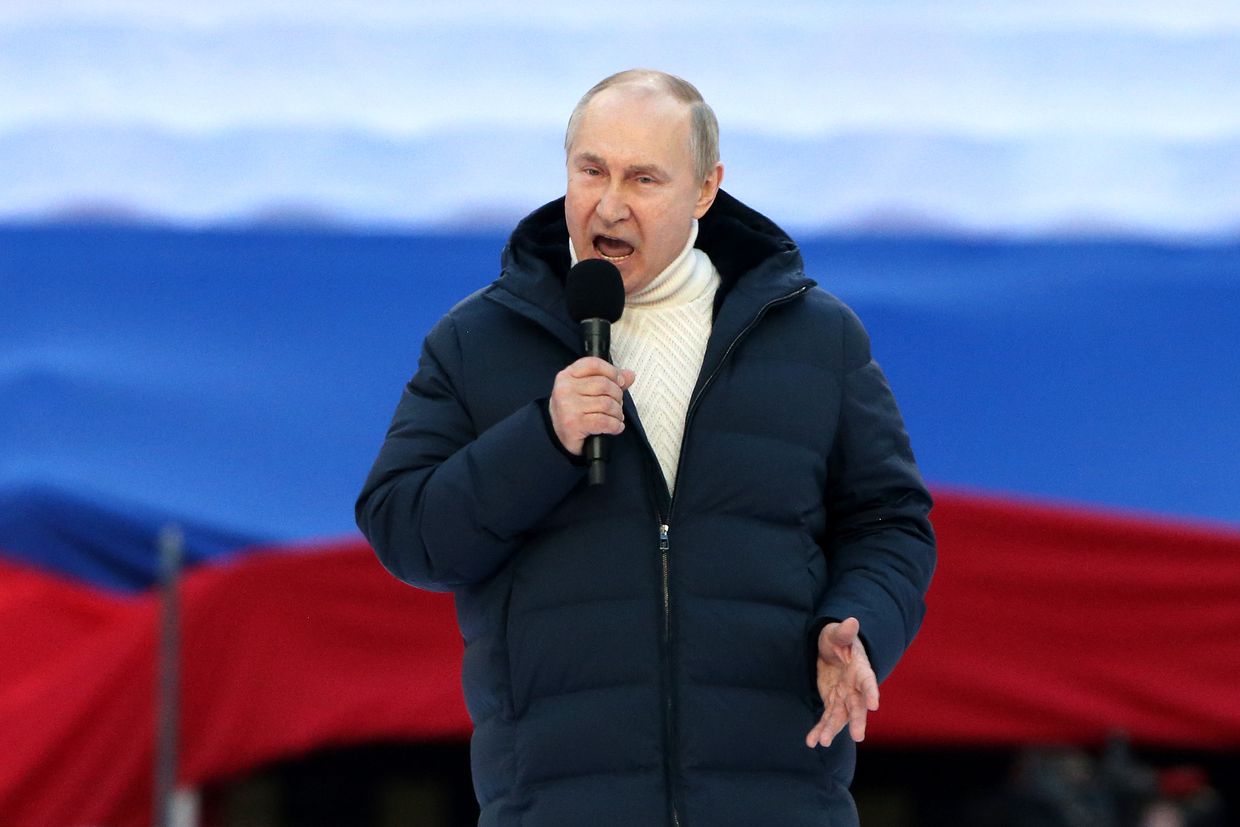
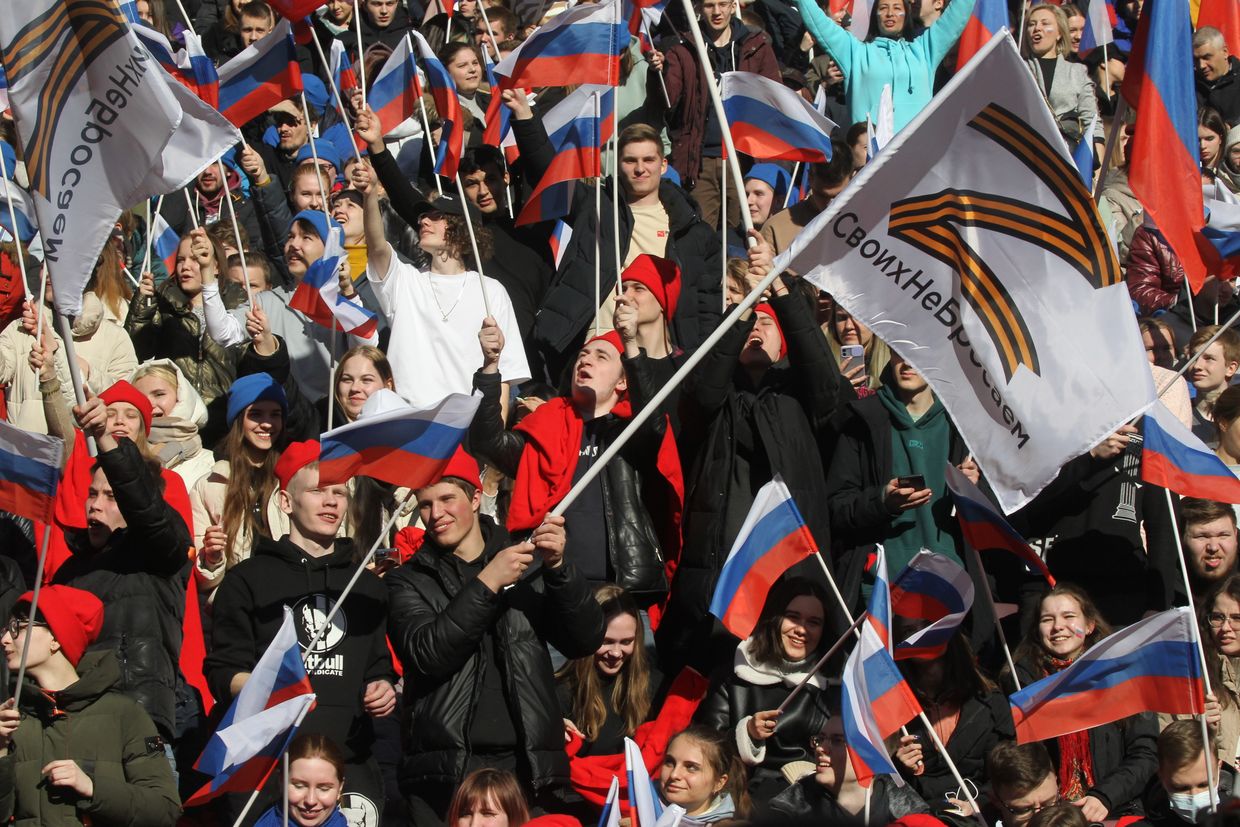
When you examine the attitudes of politicians in the West — in Germany, Britain, or America — it's striking. Even after (the occupation of) Crimea, after countless wars, after Syria, many still fail to grasp the situation.
Looking at the world's conflicts today, you see Putin as a spider at the center of the web. Yet, there remains a persistent tendency among many Western politicians to seek common ground, negotiate, and find ways to avoid the magic word — escalation. This approach is utterly misguided because the surest way to escalate is to show weakness. Everyone knows that when facing a predator, you must hold your ground and look it in the eye. If you turn your back, you're done for.
The Kyiv Independent: With increasing discussions about the possibility of negotiations and freezing conflict lines even among Ukrainian officials, the prospect of the Ukrainian flag flying over Sevastopol again, unfortunately, seems distant. Do you think the lack of a decisive military defeat could further radicalize pro-war sentiments in Russia?
Garry Kasparov: I don't think there's a strong pro-war sentiment in Russia. Instead, it's more about accepting the war as inevitable. There's very little opposition to it — let's be honest. At its peak, perhaps 15 percent of people opposed the war on moral grounds. I'm skeptical of any numbers coming from Putin's Russia, but the so-called Crimean consensus — 86 percent in favor — likely reflects the true mindset. In the early days of the full-scale invasion, I don't think more than 10 percent of the population opposed the war on moral grounds, which still amounts to 15 to 20 million people. Those who wholeheartedly supported the war were a smaller group, likely a surge of fervent supporters. The rest were more conformist, going along with it because the war brought some material benefits.
"At its peak, perhaps 15 percent of [Russian] people opposed the war on moral grounds."
I don't think there's the same fanatical belief in the cause as there was in Nazi Germany or Stalin's Soviet Union because there's no real future in this for most people. But there's compliance because there's not much else to do. If you look at the living standards in Russia, the full-scale invasion has actually acted like a drug, inflating everything, including people's earnings.
While it may not last, it created a kind of new consensus in society. Putin managed to avoid massive mobilization from big cities like Moscow and St. Petersburg, drawing most soldiers from the countryside, poor regions, and prisons.
So far, the war hasn't had the same impact on society as mass mobilization would have, nor has it caused body bags to arrive in Moscow or St. Petersburg.
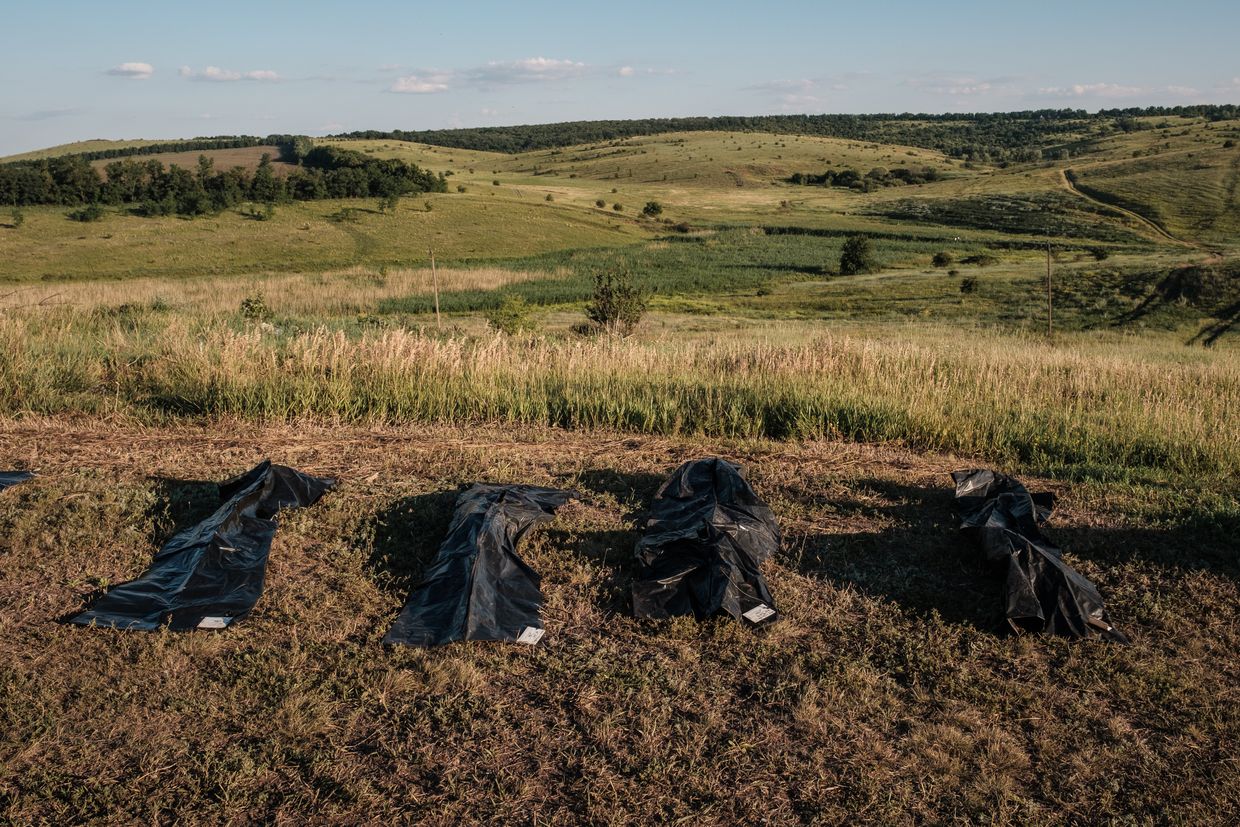
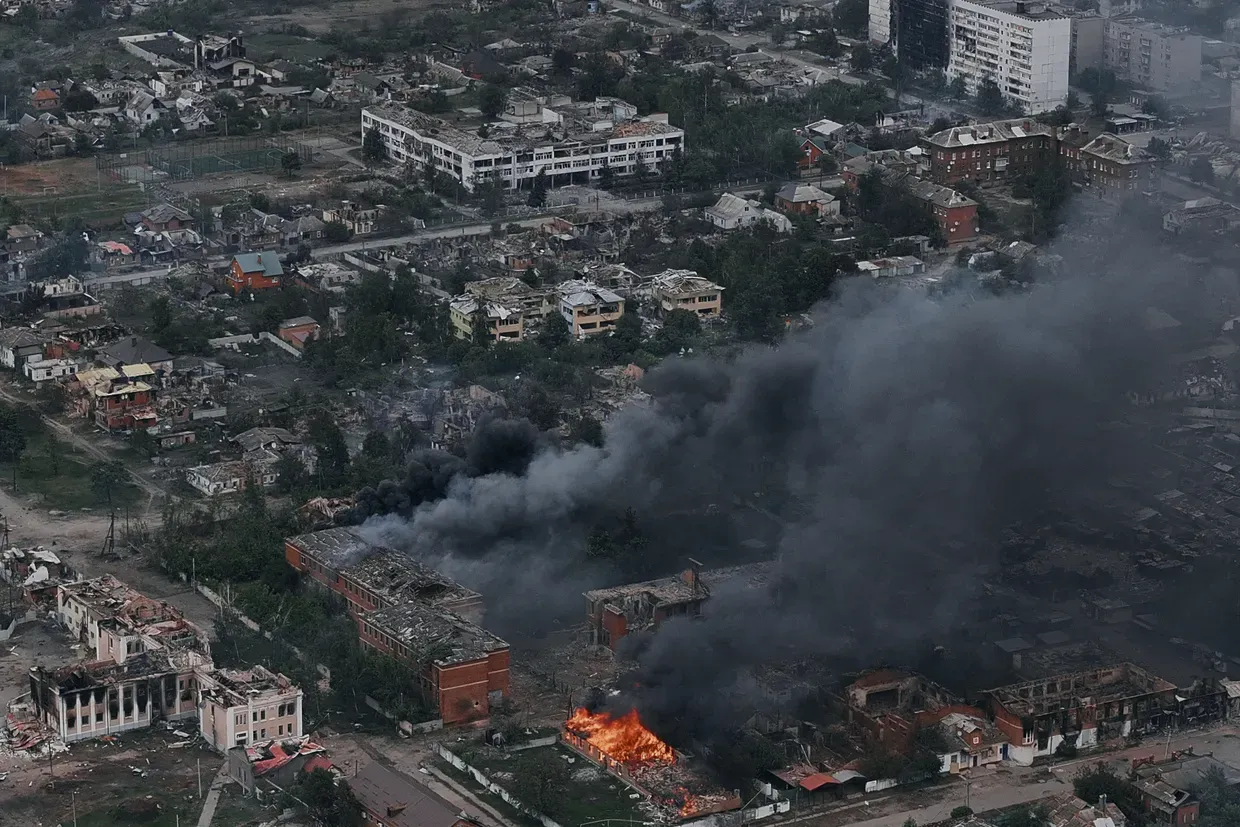
I see no evidence that any potential deal could be made. And while I'm not in favor of a deal, that's not my decision. I understand that the Ukrainian leadership must deal with reality. We also have to acknowledge that the cowardly stance of the free world has left Ukraine with very few options on the table.
It's a shame that all the weapons developed and manufactured in America — specifically to fight Russia — are still collecting dust in storage or sitting unused in the deserts of California and Nevada. The NATO alliance, which was created for the sole purpose of stopping Russian aggression in Europe, is now debating whether Ukraine belongs in it. Ukraine is the only country that has fought and is still fighting for NATO's core mission — not sending troops to Afghanistan or Iraq but preventing a Russian invasion.
While the idea of the Ukrainian flag flying over Sevastopol may take longer than we all hope, I still believe that without a decisive military defeat, there won't be substantial change in Russia.
The Kyiv Independent: Why do you think some opposition figures — such as Ilya Yashin, Yulia Navalnaya, and her late husband, Alexei Navalny — often frame their arguments to the Russian public against Russian aggression in economic terms rather than moral ones?
Garry Kasparov: Because they live within this paradigm of good Putin, bad Putin, good Tsar, bad Tsar, with no real interest in eliminating the imperial nature of the Russian state. This is the fundamental difference. When people talk about the Russian opposition, I ask: opposition to what? Reducing everything to Putin and his entourage is historically wrong because the true foundation of Russian aggression is the Russian Empire itself — its imperial mindset.
You can talk about corruption, but in a way, it actually helped Ukraine. Without it, the Russian army could have been much stronger. Thanks to the corruption of Russian generals, who stole probably half of the military budget, Ukraine has had a better chance of survival. Ultimately, the whole idea of continuing to expose corruption is irrelevant — corruption makes Putin weaker, not stronger.
Many of them dream of the day they can return to Russia, campaign, and address Russian voters. But if they see themselves doing that, they think they need to say, "We never took the other side, even when our country was wrong; we tried to stay neutral." Honestly, that's a moral dilemma I don't understand. For me, it's clear: we're fighting Putin, Putin's fascism, and everything connected to him. At the core of it all is this imperial matrix, and we have to win the war. The Ukrainian army is the only force fighting against it. So, helping Ukraine and supporting the army with all available means is the right decision. That's the only moral position — it's really that simple.
Ukraine's victory must include a full restoration of Ukraine's territorial integrity. It must also include reparations to be paid. Russia must pay for this. It is crucial to punish war criminals, whether that happens in The Hague, in Russia, or by whatever international tribunal, and there should be no compromise on this.
Someone might hear this and think, "Why don't you (and other members of the Russian opposition) just find common ground? Why don't you work together?" I'm happy to work together, as long as we see the world through the same lens. Yes, we can argue about many things, but when it comes to fundamental moral issues — matters of life and death — that's what truly matters.
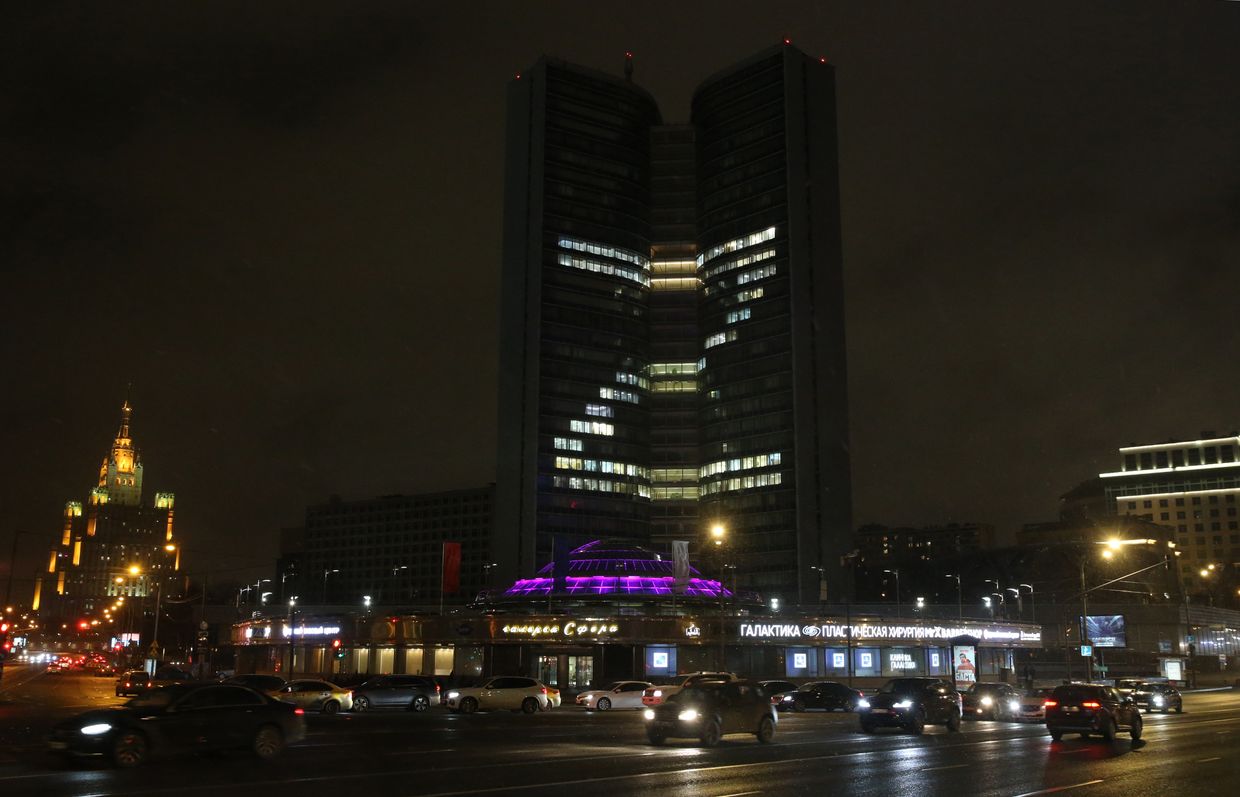
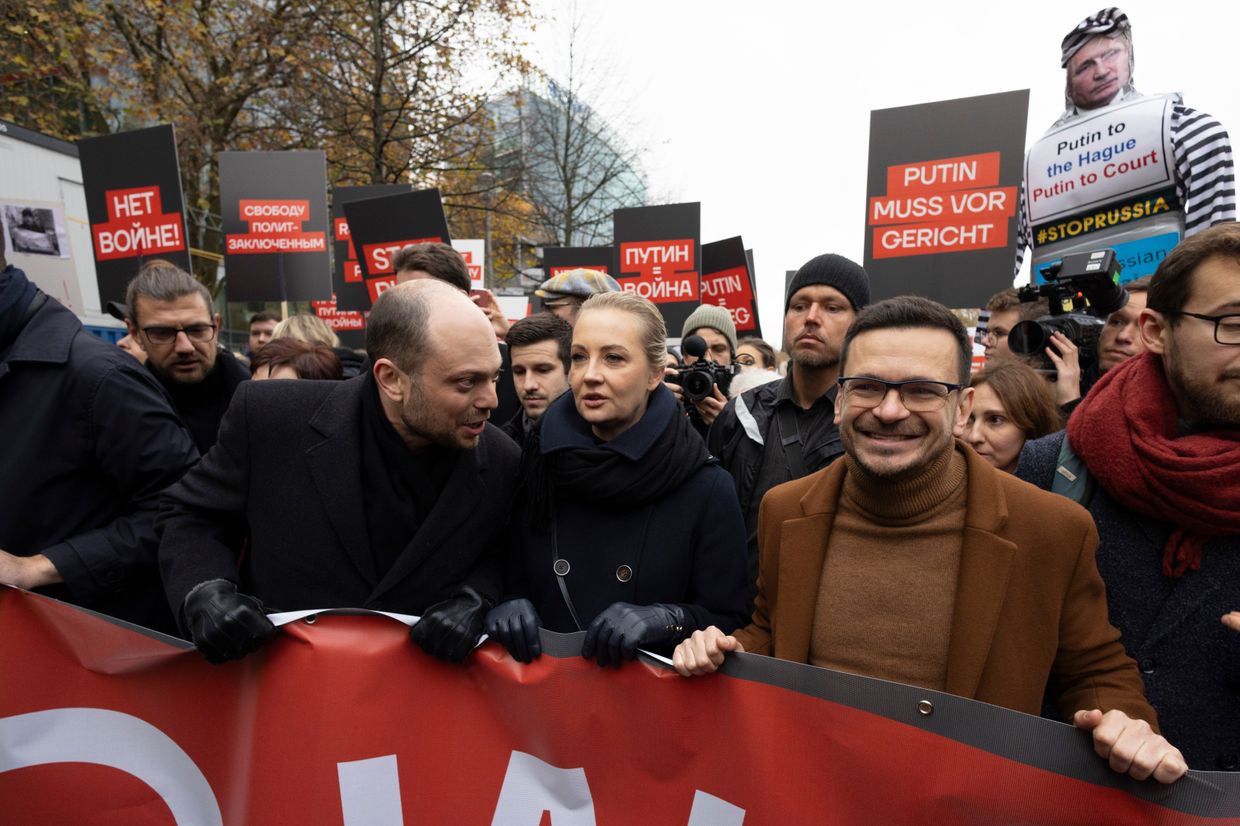
The Kyiv Independent: Do you think that's why they insist on calling it "Putin's war" rather than Russia's war?
Garry Kasparov: Absolutely, that's the point. As I've mentioned elsewhere, it's not about whether Putin personally killed someone — he probably did early on in his career — but he gives orders, and those orders are executed. I haven't heard of mass desertion in the Russian military, just some desertion, but not on a large scale.
These are orders being carried out, and many acts of cruelty show this isn't just about Putin; it's a mentality. Ignoring this and claiming it's all Putin's doing is an attempt to distort the truth. It's not politics, and to suggest otherwise is morally wrong.
"If people continue to say this is Putin's war, I will push back, rejecting that notion as absolutely inconceivable."
As much as I don't want to argue, if people continue to say this is Putin's war, I will push back, rejecting that notion as absolutely inconceivable. It's simply ignoring reality. I'm happy to debate when there are many unknowns, but no one knows better than those fighting on the Russian side that they plan to destroy Ukraine. They are attacking kindergartens and hospitals — they know exactly what they're doing when they press the button to launch missile and drone attacks. Who presses that button? It's not just Putin.
The Kyiv Independent: In retrospect, what was the Russian opposition's greatest failure leading to 2022?
Garry Kasparov: The last moment the Russian opposition had a chance to change things was back in 2011-2012 after Putin returned to power. Unfortunately, we couldn't generate enough momentum with the protests on the streets of Moscow. It was over after that. Over the next decade, it became clear that the system was fake. You could have participated in some elections, but they were absolutely meaningless. What did those elections accomplish? I had several debates with (members of the Russian opposition) about this.
My point was simple: if you find yourself in a bad position, like in chess, it doesn't mean you have to make a bad move. Many young people were misled by the claims that they only needed to go out and protest. But what was the goal? Putin was firmly in power, and these opposition activities, without clear goals, couldn't change anything inside the country. They only created the wrong image in the free world.
While in exile, I've met with top politicians and given interviews. Whenever I spoke out about this, people would say, "Mr. Kasparov, you're a great chess player, but we're talking about Russia, not the Soviet Union. You have Navalny, you have others." But by saying so, they were essentially helping Putin build his war machine and providing cover for him.
A good example was back in 2018 or 2019, just before COVID. The question arose about restoring Russia's membership in the Parliamentary Assembly of the Council of Europe (PACE), the Strasbourg Court of Human Rights. I wrote an open letter to Heiko Maas, then Germany's Foreign Affairs Minister, saying it was absolutely immoral.
Russia had violated every provision of that organization — every rule. They were occupying Ukraine's sovereign land, just as they had done with Georgia.
He, of course, never responded to me directly, but there was an indirect response. He gave another interview, saying, "Yes, we've heard some pushback," without naming me. He also mentioned having a letter from 39 human rights organizations in Russia supporting the restoration of Russia's membership in the Strasbourg Human Rights Court.
Meanwhile, some organizations are pretending that they're operating in Russia. It's clear that it's about funding. Millions of dollars are still being wasted on these fake activities in Russia by organizations that never did anything useful there.
Millions of dollars are still being wasted on these fake activities in Russia by organizations that never did anything useful there.
Now, in exile, they continue pretending. They claim they must protect their people, but I say stop this nonsense. Nothing is happening in Russia. These people pretend they're making a difference. They speak about demonstrations and say they're against the war, but that's not enough.
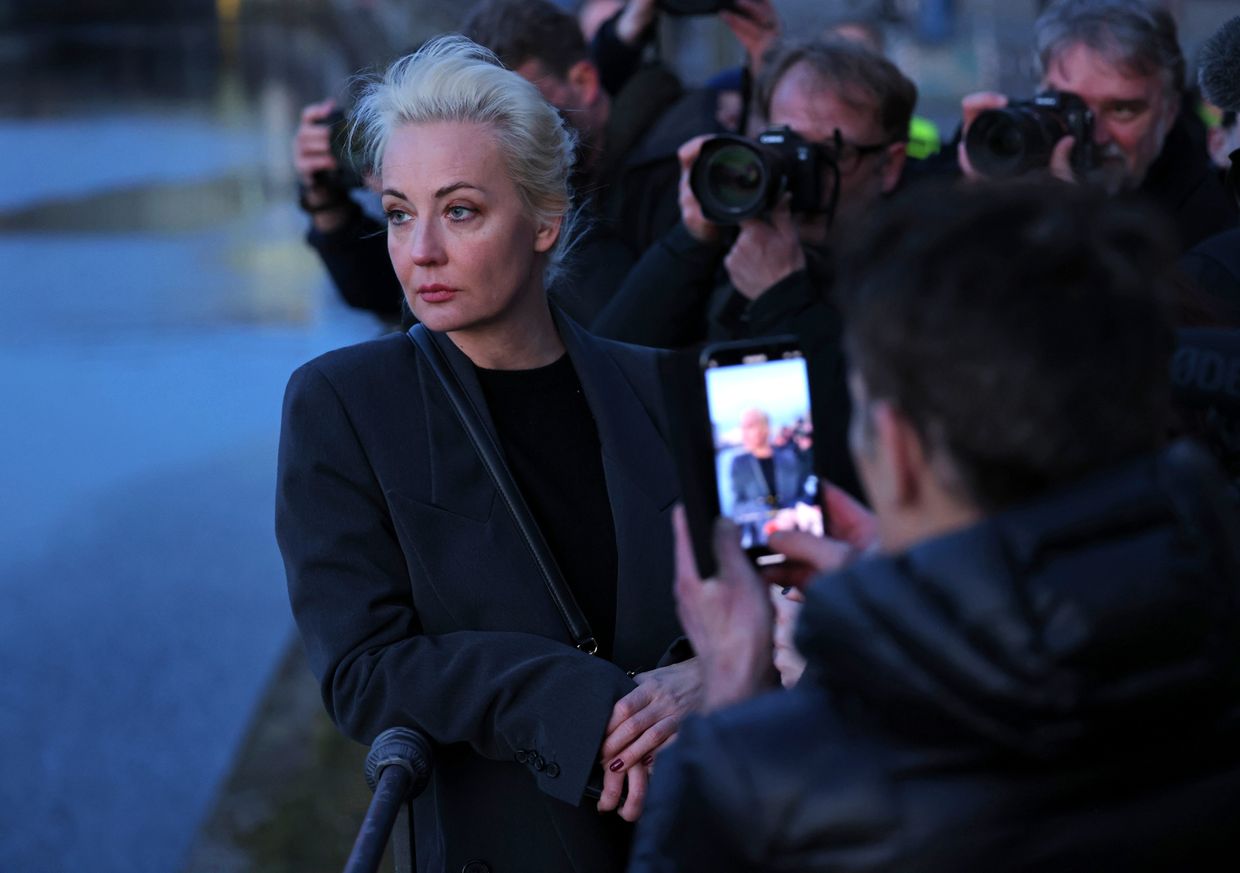
We must support Ukraine's victory in this war. You never hear them say Ukraine must win. It's always about stopping the war, but at this point, maybe even Putin wants to stop it for his own reasons.
There is no common ground between us. This is unfortunate because it creates bad optics, but the reality is that most of the Russian opposition, or those who believe they are opposition, don't realize that it's not enough. They still hold on to the idea of a "good Putin" alternative, essentially wanting to replace the bad Putin with a "good Tsar."
The Kyiv Independent: Given the current state of the Russian opposition, particularly with so many figures now in exile, what do you believe is the most effective approach to challenging Putin's regime and supporting Russia's future?
Garry Kasparov: Well, I'd like to ask again — what opposition? This so-called opposition has failed to make meaningful change, and I don't see how anything can be done at this point except supporting Ukraine in winning the war.
Right now, it's about surviving this onslaught and winning. This illustrates the key differences in our approaches.
From the very beginning of the full-scale invasion, I proposed an idea later supported by Mikhail Khodorkovsky: we should offer every Russian who opposes the war and wants to leave the country the chance to do so after signing a declaration. We worked out the Berlin Declaration, which was a mild statement compared to the Free Russia Forum Council's format, but it contained three key points: the war is criminal, the regime is illegitimate, and Crimea is Ukraine.
It's a simple test — if someone is willing to sign it, we need to find a way for them to leave the country, obtain a visa, and find a place in the free world.
There are several important aspects to this plan. One is that it can impact the intellectual class in Russia — people involved in finance, business, IT, and engineering, including those who could possess the kind of knowledge that would have them working on the development of missiles.
I'm not offering a moral defense for them, but before criticizing anyone, we need to give them a chance to leave. So far, Putin has gained a significant ideological advantage because these people see that the world doesn't want them. As a result, hundreds of thousands, possibly millions, of Russians — crucial to Putin's war machine — remain in Russia. Without them, Putin's economy, especially his war economy, would collapse.
This was the plan, but strangely, many of our colleagues in the opposition were not happy. They argued that we can't let people leave because who will protest against Putin? But I don't see people needing to stay just to protest. We could help these people leave, work with them, and build what I call "Russian Taiwan" — a network of the future free Russia.
When the moment comes, and the regime collapses, those who want to return can come back, and they would be the new ruling elite. But the opposition rejected this idea. For example, did you ever hear Yulia Navalnaya talk about something along those lines? She has met with many prime ministers and presidents but never mentioned anything like it.
Instead, they all rejected the idea because, in their view, it wasn't a good one. That's exactly what Putin needs — people to stay and oppose the idea of leaving.
So, if someone calls themselves a member of the Russian opposition, tell me, what is your goal? I know what our goal is.
The Free Russia Forum, which I co-founded, believes that Ukraine must win — that is our only chance. We must work toward Ukraine's victory and create momentum for Russia's defeat.
Only then can we begin to consider what comes next.
